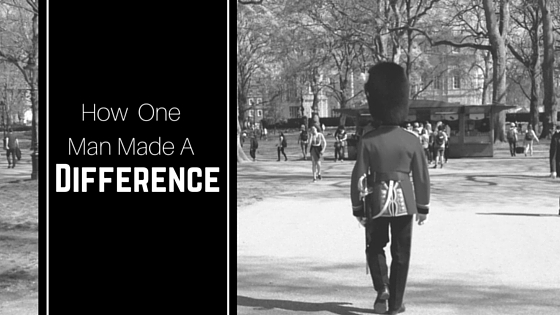May 20, 1940. The army of the German Reich was sweeping across Northern Europe; four hundred thousand English troops were trapped on the northern coast of France; Neville Chamberlain had just resigned as Prime Minister and Winston Churchill had replaced him.
The English government was torn between fighting on against impossible odds or, perhaps more sensibly, signaling to foreign intermediaries an openness to discuss with Hitler terms of a truce.
Could Churchill, with all the odds stacked against him, make a difference? He himself describes the apparent hopelessness of the situation this way: Europe was sinking into “the abyss of a new dark age, made more sinister and perhaps more protracted by the lights of perverted science.”
If some of the leading figures in the British government had their way, including Lord Halifax and Neville Chamberlain, Britain would have winked at the evil they saw for the false security that their trembling hearts demanded.
Churchill saw the nature of the encroaching evil and he decided only a firm “no” was possible. He said he would prefer to die while trying to save the world from falling into a new dark age. “And I am convinced,” he said, “that every one of you would rise up and tear me down from my place if I were for one moment to contemplate parley or surrender. If this long island story of ours is to end at last, let it end only when each one of us lies choking in his own blood upon the ground.”
Facing these odds, Churchill’s decision and subsequent actions were heroic by any measure. If he had not been present at that critical moment of history; the darkness of Hitler’s malevolent empire would have, in all probability, spread to all corners of the globe.
Boris Johnson has recently written a biography of Churchill and describes these dark days of May 1940 as a crucial moment where one man changed the course of history. Here is how Johnson put it:
I don’t know whether it is right to think of history as running on train tracks, but let us think of Hitler’s story as one of those huge and unstoppable double-decker expresses that he had commissioned, howling through the night with its cargo of German settlers. Think of that locomotive, whizzing towards final victory. Then think of some kid climbing the parapet of the railway bridge and dropping the crowbar that jams the points and sends the whole enterprise for a gigantic burton-a mangled, hissing heap of metal. Winston Churchill was the crowbar of destiny. If he hadn’t been where he was, and put up resistance, that Nazi train would have carried right on. It was something of a miracle-given his previous career-that he was there at all. (The Churchill Factor p.30)
Johnson goes on to speculate about what would have happened if Churchill had not become Prime Minister in May 1940. He calls this ‘counterfactual’ history, but it is an interesting question nevertheless. It might seem fruitless to speculate about the world without Winston Churchill standing athwart history, but this particular case, the timely appearance of one man in a certain moment in human history made all the difference in the world.
